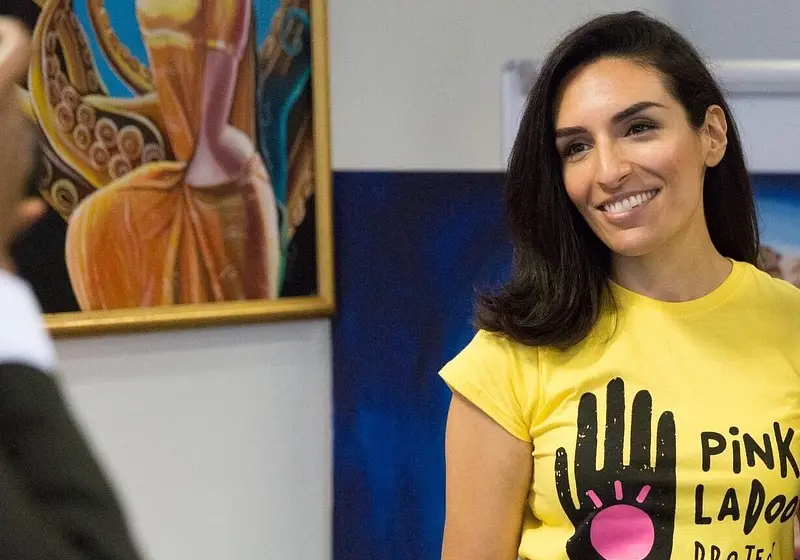In a world full of amazing books, Indian writers have always brought something special to the table with their unique styles and engaging stories. From the colorful mix of cultural traditions to modern stories that really stretch your imagination, Indian books have a wide variety that's both interesting and moving.
In this piece, we're highlighting the top 5 best books by Indian writers—stories that have not only been praised by critics but have also deeply touched the hearts and minds of readers. Whether you're a big fan of Indian books or just getting started, these incredible stories are sure to take you on a deep dive into the complexities of human life and the rich culture of India.
Let us slide into your dms 🥰
Get notified of top trending articles like this one every week! (we won't spam you)1. The Forest of Enchantment by Chitra Banerjee
Chitra Banerjee Divakaruni's The Forest of Enchantments is a beautiful and touching story about the ancient Indian tale, the Ramayana, told from Sita's point of view. Divakaruni gives us a new take on Sita's story, focusing on her life and the challenges she faces, all through a modern, feminist lens.
The story takes place in the magical forest of the Ramayana, where we get a deep dive into Sita's feelings, dreams, and thoughts. Divakaruni's writing is vivid and poetic, bringing ancient India to life and adding a modern twist to Sita's story. She shows us Sita as a strong, tough woman who deals with being a daughter, wife, and mother.
What really makes this book stand out is how it makes Sita feel real. Divakaruni makes us see Sita as more than just a character in a story. Through her writing, Sita becomes a symbol of bravery and strength, facing the ups and downs of her life with grace and determination.
The Forest of Enchantments also hits hard on our emotions. Divakaruni captures Sita's feelings of loneliness, her desire to go back home, and her deep loyalty to her values and loved ones. The way Divakaruni develops Sita's character and pays attention to the little details makes her journey feel both relatable and inspiring.
The book is also visually stunning, with descriptions that make you feel like you're right there in the forest, surrounded by its beauty and mystery. Divakaruni's way of describing nature adds to the book's magical feel, making it a story where myth and reality blend together.
Even though the story is set in ancient times, its messages about being strong, discovering yourself, and standing up for what you believe in are still relevant today. The Forest of Enchantments is a great example of Divakaruni's talent for storytelling and her knack for bringing old stories to life. Whether you're already familiar with the Ramayana or just starting to read it, this book offers a new and engaging look at one of its most beloved characters.

Photo by Cornell Uni. Library from Wikipedia Commons

Take the Quiz: What’s Your Perfect Skincare Product for the 'Clean Girl' Look?
Take this quiz to discover the perfect skincare product for your “clean girl” routine!
2. India's Most Haunted by K. Hari Kumar
K. Hari Kumar's book, "India's Most Haunted," takes you on a spooky journey through the ghost stories and paranormal experiences of India. It's a collection of chilling real-life tales and haunted places that mix history with scary stories that just don't make sense.
The book is split into different stories, each about a different haunted spot in India. From old forts to fancy colonial houses, Kumar shines a light on some of the country's most famous and not-so-famous haunted spots. He digs deep, using historical facts, local stories, and people who've seen things, making the book feel real and spooky.
Kumar's way of telling these stories is captivating, making you feel like you're right there in the spooky places with him, with detailed descriptions and a good amount of suspense. He pays close attention to the little things, making it easy to picture the creepy places and scary things that happen in the book. Mixing in history and personal stories makes the stories feel more real and impactful.
A big plus of "India's Most Haunted" is how it tells ghost stories with a cultural and historical twist. Kumar gives background on why each place is famous, mixing in the legends and stories that make these places haunted. This not only keeps you entertained but also teaches you about the deep stories and cultural roots of Indian ghost tales.
While the book is really well-researched and keeps you on the edge of your seat, some of the stories might not be as intense or detailed as others. A couple of them feel more like stories than solid investigations, which can make the book a bit uneven. However, the book's knack for making you feel mysterious and intrigued usually makes up for these small flaws.

3. The Japanese Wife by Basu Kunal
Kunal Basu's “The Japanese Wife” is a beautifully written book that mixes themes of love, cultural clashes, and how war affects people's lives through its well-developed characters. Set in the mid-20th century in India and Japan, the story is touching and deep, showing a lot about love and understanding different cultures.
The story is about a unique love story between a Bengali guy, Snehamoy Chatterjee, and a Japanese woman, Miyage. Snehamoy, who teaches in a small village in Bengal, finds a deep connection with Miyage, even though they've never met in real life but have been writing letters to each other. Their love, based on words and imagination, shows how powerful love can be, crossing borders and cultures.
Basu's writing is really good, making you feel like you're right there with Snehamoy and Miyage. The book looks into the complicated parts of their relationship and how their love fits into big events like World War II and India's fight for independence. Basu pays a lot of attention to the little details and history, making the story richer and more interesting.
One of the best parts of the book is how it talks about being apart and missing each other. Snehamoy and Miyage are separated by distance and cultural differences, but their love stays strong. Basu does a great job showing the small, personal feelings and the big, heavy feelings that come with unfulfilled hopes.
The other characters, like Snehamoy's family and Miyage's friends, add more to the story, giving it different viewpoints and showing the social norms and prejudices of the time. These characters help explain the big love story and how it affects the people around them.
But, some readers might find the book slow at the start, especially in the beginning where it's more about getting to know the characters and their backgrounds. The book also gets into deep thoughts, which might not be for everyone who likes straightforward stories or doesn't care much about the characters' backgrounds.

Photo by aestelle from Unsplash
4. Shivaji The Greatest Maratha by Ranji Desai
The Greatest Maratha is an engaging and easy-to-read biography about one of India's most famous heroes, Chhatrapati Shivaji Maharaj. As the guy who started the Maratha Empire back in the 17th century, Shivaji's story has been told many times, but this book by Desai brings a new and interesting take on this legendary figure.
The book tells the story of Shivaji Maharaj, focusing on his military skills, smart strategies, and forward-thinking leadership that helped shape the Maratha Empire. Desai's story is both interesting and informative, pulling readers into Shivaji’s world. The book is packed with research, using lots of historical facts and first-hand accounts to make Shivaji’s life and times come alive.
Desai's writing is clear and easy to understand. The biography is laid out in a way that's simple to follow, making it great for anyone who's not too into history or just looking for a good read. The author's knack for breaking down complicated historical events into something easy to get is what makes this book so accessible.
One of the best parts of the book is how it shines a light on Shivaji’s smart military strategies and his ability to run a country. Desai talks about Shivaji’s creative ways of fighting, like using surprise attacks and focusing on building strong defenses, which were key in making the Maratha Empire what it was. The book also looks into Shivaji’s rules on how to run a government, how he dealt with justice, and his views on religious freedom, showing him as a leader who was ahead of his time in wanting a fair and progressive society.
Desai also gives us a peek into Shivaji’s personal life, including his family, the challenges he faced, and his dreams for the Maratha Empire. This personal touch makes Shivaji more than just a historical figure; it makes him relatable, showing him as someone with dreams, obstacles, and victories.
However, some readers might feel like the book skips over some parts of Shivaji’s rule. While focusing on the big events and achievements is good for keeping things interesting, a deeper dive into some of the political and social issues of Shivaji’s era could have given readers a better understanding of his impact.

Photo by Samson from Wikipedia Commons
5. Three Thousand Stitches by Sudha Murty
Sudha Murty's "Three Thousand Stitches" is an engaging mix of personal stories that give us a close look at her life and how kindness and toughness have changed her. Known for her great storytelling and charity work, Murty's newest book keeps showing off her talent for blending personal tales with deep life lessons.
In "Three Thousand Stitches," Murty talks about her varied life experiences, from her early days in Karnataka to her work as a social worker and author. Every story in the book shows her deep understanding, practical advice, and sharp eye for human behavior. The book's title comes from a key moment in Murty's life when she started making uniforms for kids who didn't have much, showing her dedication to helping others and how even small acts can make a big difference.
One of the book's best things is how Murty tells her stories. Her writing is easy to read but really pulls you in. Murty's skill in explaining complex feelings and lessons in a way that everyone can understand makes the book relatable and interesting. Whether she's sharing heartwarming moments or tough situations, her stories feel real and warm.
A common theme in the book is how important charity work is and why it's crucial to give back to the community. Murty's time as the Chairperson of the Infosys Foundation is a big part of her essays, where she talks about different projects and efforts to help people who are less fortunate. Through her stories, we get a peek into the ups and downs of helping others and the bigger social issues she tackles.
Besides her charity work, Murty also shares personal thoughts on family, education, and cultural values. Her stories often highlight the importance of being humble, never giving up, and respecting different cultures. These reflections give us valuable life lessons and a better understanding of the values that have shaped her life.

Photo by Karoline from Unsplash
These five books give you a small peek into the amazing world of Indian literature. Each one has its own special way of telling stories, from magical twists to historical adventures, or even modern problems, showing off the wide range and depth of Indian stories. Diving into these books helps you get a better feel for India's culture and society, and also highlights the incredible skills of Indian writers worldwide. Enjoy reading!











.jpg)



